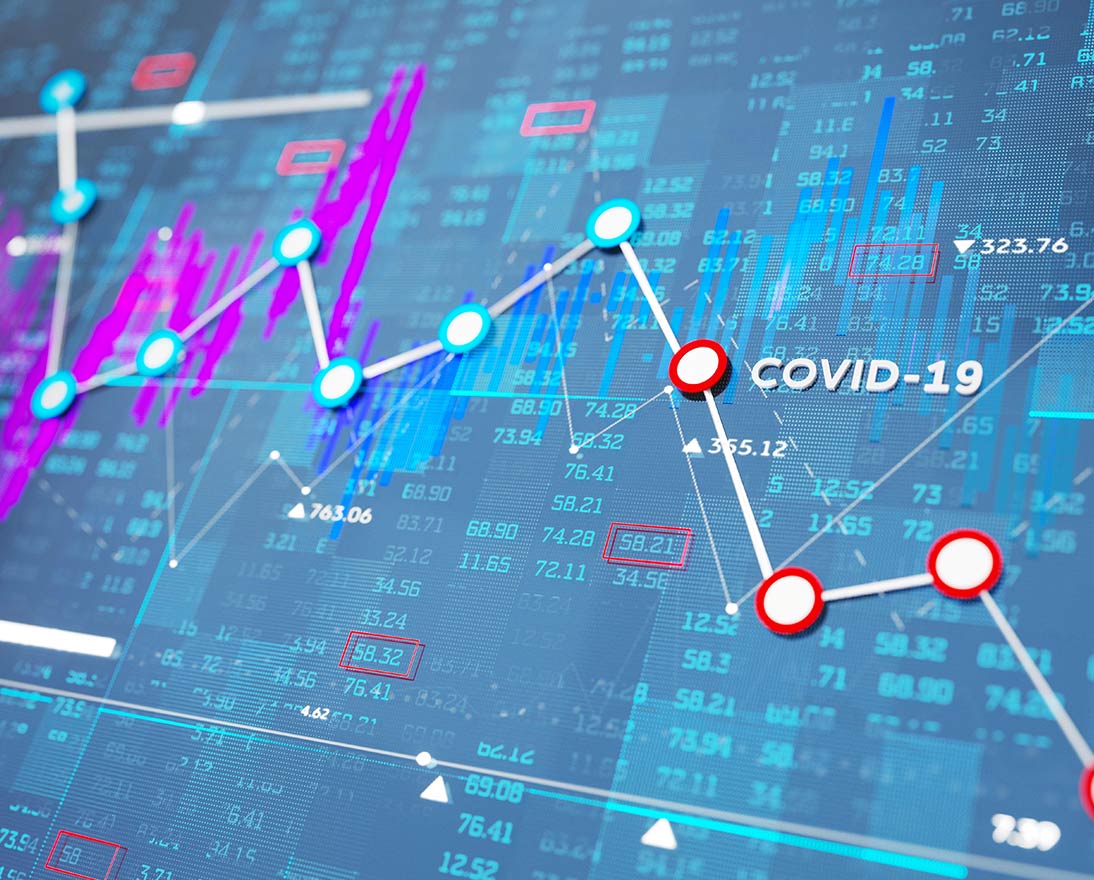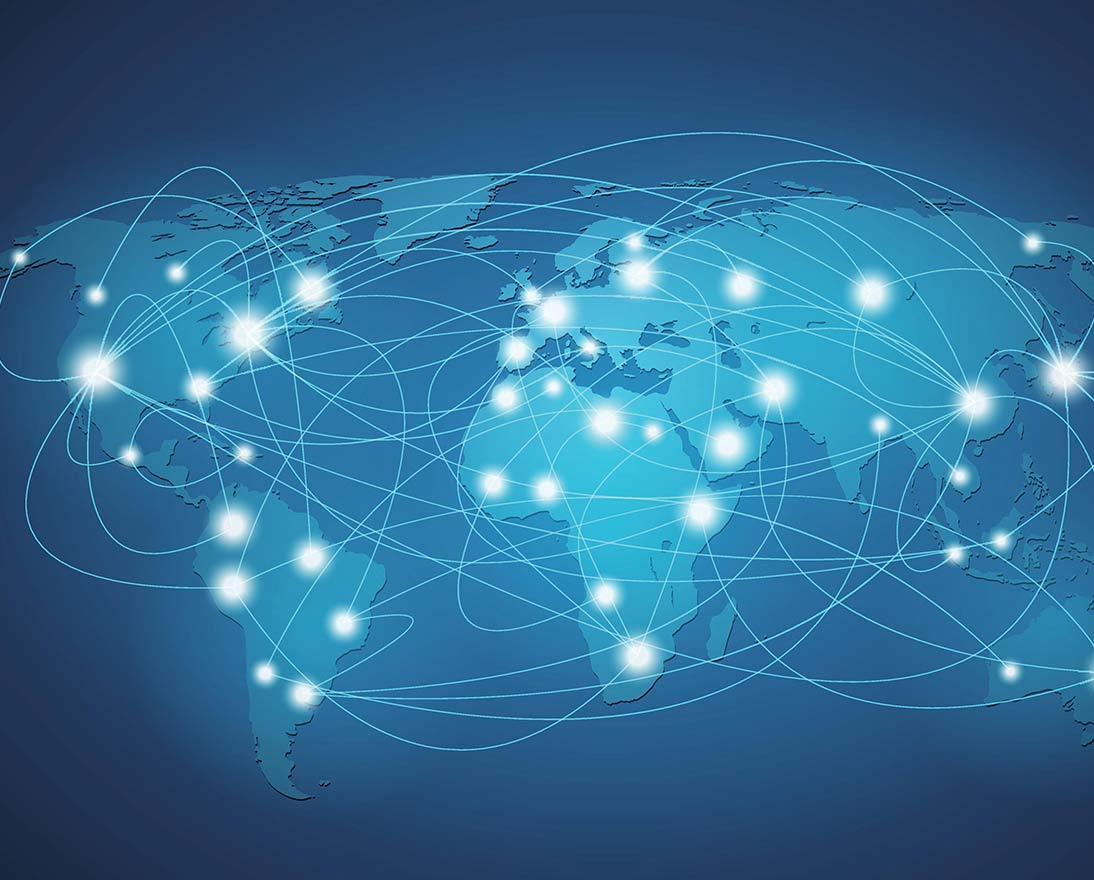The Human Side of Business Risks
Global risksArticleOctober 15, 2020
According to John Scott, Head of Sustainability Risks, behind the economic impact of COVID-19 lie the human costs of the pandemic.
COVID-19 and its associated economic impacts are leading concerns of business leaders around the world, according to the latest annual survey on their perceptions of global risks by the World Economic Forum. But dig a little further into the data of this year’s Executive Opinion Survey (EOS) and it’s the human impacts of the health crisis, that we all feel, which worry business people as well.
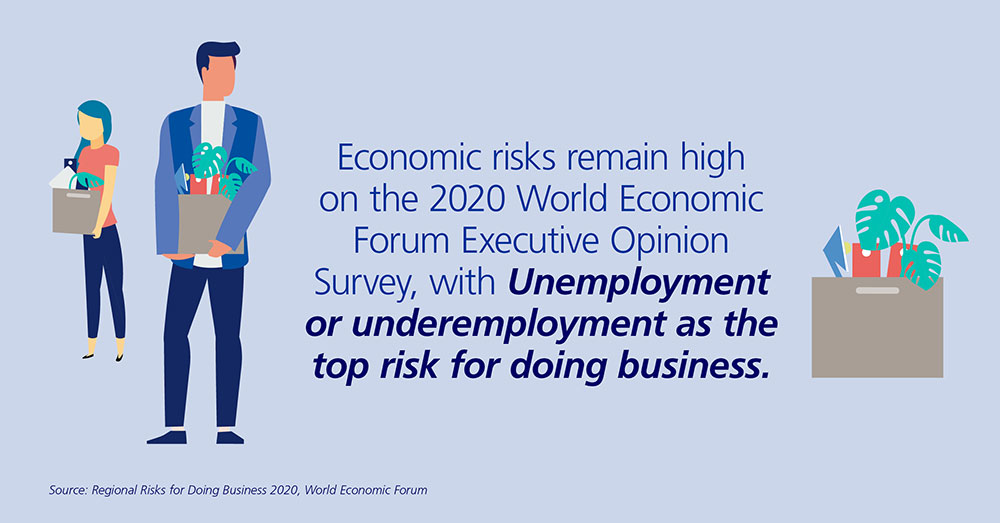
As I wrote in a blog earlier this year, behind these statistics lie the human costs of the pandemic. Not knowing how this pandemic will play out affects our economic, physical and mental well-being against a backdrop of a world that, for many, is increasingly anxious, unhappy and lonely.
In large parts of the Western OECD nations, especially in Europe and North America, the COVID-19 crisis has highlighted the plight of the vulnerable, and the health inequalities for the poor and often for BAME communities. The Black Lives Matter movement was in part encouraged to express itself by these health, social and income disparities as well as racial and gender inequalities. Widespread unemployment and underemployment, as a consequence of economic lockdowns, and the profound social instabilities they lead to, are both showing a marked rise in the EOS risk data in these regions.
In Latin America the EOS continues to show profound social unrest linked strongly with concerns around unemployment and underemployment and failure of national governance, all made worse by the COVID-19 crisis. Latin America, along with South Asia, was the first big group of emerging economies hit in a big way by the pandemic. Compared to Europe and North America, the Latin American health care systems were already stressed before this pandemic and were the trigger for a number of public protests in 2019.
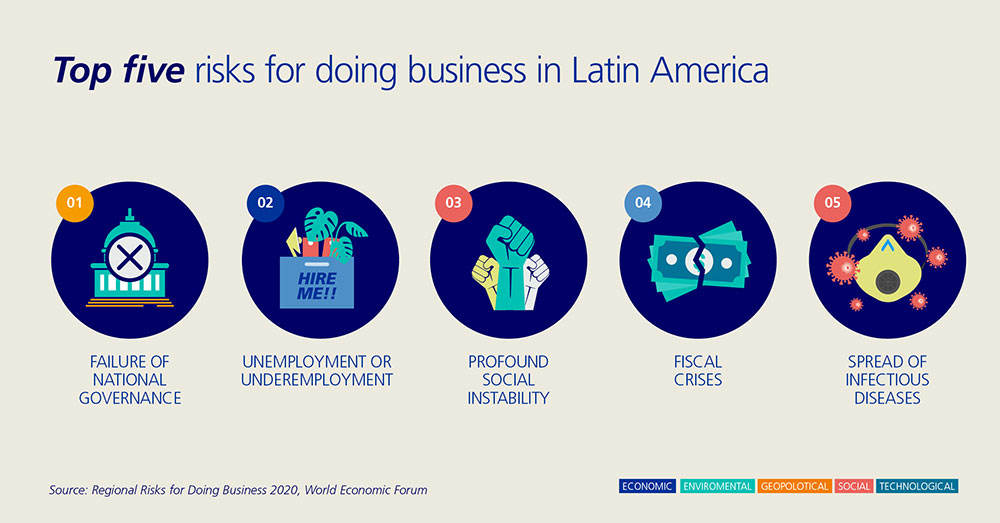
The crisis also has economic consequences for people in the region, where growth is forecast at -5% for the year in the wake of an oil price crisis, reduction in tourism and falling demand for commodities – a big challenge for a region dominated by commodity prices. The reality is that for many countries in Latin America, half of their working population works in the informal economy. Countries are being forced to make a trade-off between managing the disease, protecting the economy and feeding the people.
In Sub-Saharan Africa, countries face similar challenges and risks, albeit in a region where strained health care systems are already struggling to deal with other infectious disease outbreaks such as Ebola. The very young demographic profile of many countries in the region may ultimately help mitigate the total number of excess deaths due to COVID-19, but the economic and societal impacts are magnified by extreme poverty. For people living below the International Poverty Line of $1.90 a day, it’s a constant struggle to find enough clean water and food to live on.1
There are few safety nets for people living in such extreme poverty and the consequences of COVID-19 such as the death of the family breadwinner, or the cost of medicines for elderly relatives can be enough to deepen poverty and the sense of hopelessness that comes with it.2 Even the safety net of relatives working in developed countries remitting earnings to the family can be shut off by the global impacts of COVID-19. The World Bank economists predict the first increase in global poverty this year since the 1990s, with over 71 million people pushed into extreme poverty.3
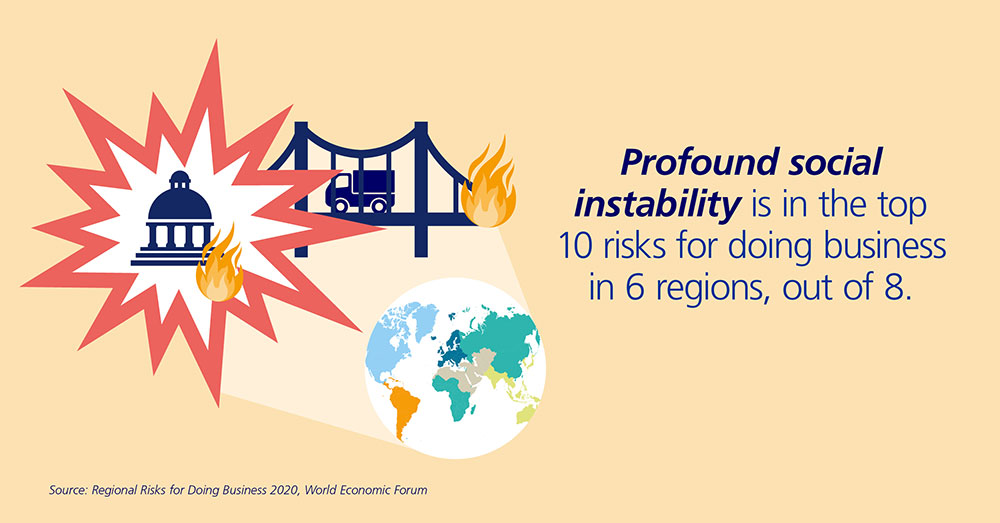
In the Middle East and North Africa many countries are seeing geopolitical and economically driven social unrest, especially in countries that do not have the fiscal capabilities to address the COVID-19 challenges. The energy crisis linked to the COVID-19 pandemic and global economic lockdowns was unexpected, but is just one of many complicating factors, especially in the oil producing countries of the region that are the main supporters and benefactors of the countries in need of fiscal support. In 2011, during the Arab Spring, significant political turmoil took place, with social unrest as a consequence of people suffering from lack of good governance, economic insecurity and unemployment. The same levels of social unrest could happen again if the economic impacts of COVID-19 continue.
So overall, while the economic risk and consequences of the COVID-19 crisis weigh heavily on the minds of business people, the social impacts and the human consequences are real and likely to be long-lasting too. Every region has these impacts and even though they manifest in different ways, by country and by region, the world remains an increasingly anxious, unhappy and lonely place for many people.
1 World Bank report “Poverty and Shared Prosperity 2020: Reversals of Fortune” https://www.worldbank.org/en/publication/poverty-and-shared-prosperity
2 FT Magazine article by Simon Kuper, 24th September 2020 “How the pandemic deepened the poverty pit”
3 World Bank Blogs “Updated estimates of the impact of COVID-19 on global poverty” by Daniel Gerszon Mahler, Christoph Lakner, Andres Castenada Aguilar and Haoyu Wu, June 8th 2020 https://blogs.worldbank.org/opendata/updated-estimates-impact-covid-19-global-poverty

